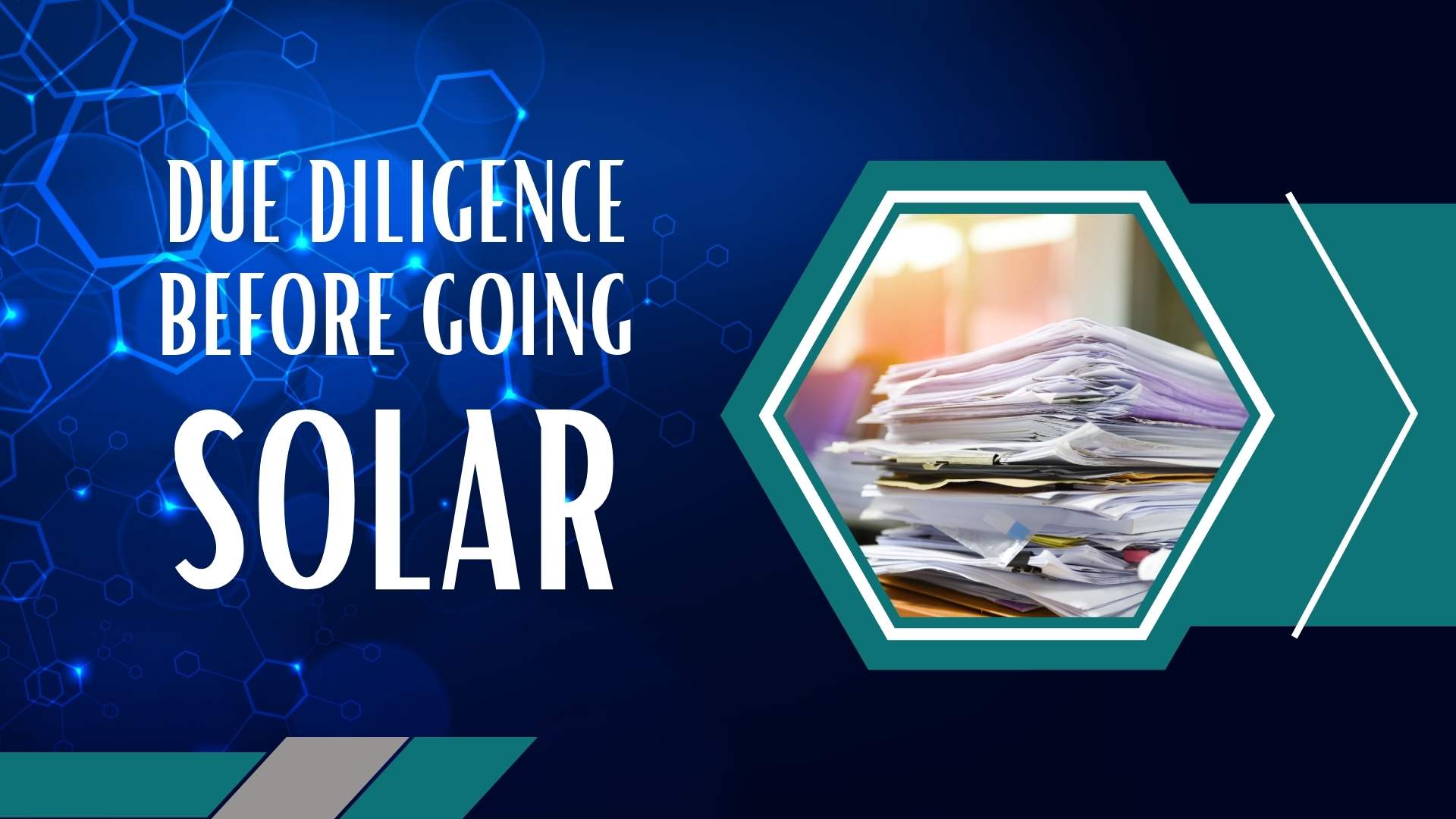Due diligence before going SOLAR
The world continues to seek out cleaner and more sustainable sources of energy. And so solar farms have emerged as a promising investment opportunity.
Investing in solar farms can provide financial returns and environmental benefits. Do remember, though, that conducting proper due diligence is crucial before making investment decisions.
Here are some key factors to consider when conducting due diligence on solar farm investments:
Project Development Stage
It is essential to understand the stage of development of the solar farm project you are considering investing in. A project in the early stages of development, such as a site selection or feasibility study, carries more risk than a project that has already secured permits and financing. Therefore, understanding the project’s development stage will help you assess the level of risk and potential return on your investment.
Location, due diligence before going SOLAR
The location of the solar farm is critical to its success. The project should be located in an area with high levels of solar irradiance, low environmental risks, and a supportive regulatory environment. Factors such as access to transmission lines and proximity to the grid also play a role in the success of a solar farm project. Conducting a thorough analysis of the location and its suitability for a solar farm project is crucial in making an informed investment decision.
Project Economics
The financial viability of the project is a key factor to consider. Understanding the expected revenue streams and costs associated with the solar farm project will help you determine the potential return on investment. You should analyze the predicted revenue from electricity sales. Include any government subsidies or incentives, and compare them to the project’s estimated costs, including equipment, construction, and ongoing maintenance.
Technical Feasibility
The technical feasibility of the project is another critical factor to consider. This includes the availability and reliability of solar panels. Also, the performance of the solar farm system and the quality of the equipment being used. In addition, it is important to assess the technology being used. What’s more, the expertise of the project development team. It is to ensure that the project is technically feasible and can meet the expected energy production levels.
Regulatory Environment, due diligence before going SOLAR.
The regulatory environment for solar energy projects can vary greatly depending on the project’s location. Therefore, it is crucial to assess the local and national regulatory environment for solar farms. It is to ensure the project can secure the necessary permits and comply with environmental regulations. Understanding the regulatory environment will also help you assess any risks associated with the project. One needs to ensure that the project is compliant with any legal requirements.
In conclusion, due diligence is critical when considering an investment in solar farm projects. Conducting a thorough analysis of the project development stage and location. Looking into project economics, technical feasibility, and regulatory environment will help you make an informed investment decision. With proper due diligence, investing in solar farms can provide both financial returns and environmental benefits.
If you are interested in investing in photovoltaic farms in Poland, don’t hesitate to get in touch with us at +48 797 897 895 or biuro@lighthief.com
Read about solar asset management in Poland.
Also read about Solar Investments in Poland.
Read about Poland’s solar farm’s industry.
or about Chinese solar investors in Poland.
Read about O&M services on solar farms.

